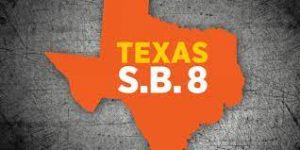 In a case challenging the constitutionality of SB 8, the Texas Supreme Court has reversed and remanded to the Austin Court of Appeals to determine whether the plaintiffs have standing to sue.
In a case challenging the constitutionality of SB 8, the Texas Supreme Court has reversed and remanded to the Austin Court of Appeals to determine whether the plaintiffs have standing to sue.
As you may recall, abortion and women’s health care providers have challenged the constitutionality of SB 8, the 2021 legislation that created a no-injury cause of action by any person against any person for aiding or abetting an abortion. TCJL filed amicus letters before the Fort Worth Court of Appeals and Austin Court of Appeals, urging the courts to adjudicate the constitutional issues raised. It is important to emphasize that TCJL’s letters take no position whatsoever on the underlying policy issues involved in the bill but only on the constitutional standing and delegation issues decided by MDL Judge David Peeples in Texas Right to Life v. Van Stean. Last May, the Austin Court of Appeals affirmed Judge Peeples’ ruling that the Texas Citizens Participation Act did not apply to the litigation. (No. 03-21-00650-CV; May 26, 2023). Texas Right to Life sought review.
In a per curiam opinion handed down on November 22, SCOTX reversed and remanded to the court of appeals. Texas Right to Life and John Seago v. Allison Van Stean, et al. (No. 23-0468). The Court held that the court of appeals should have determined whether the abortion funds had standing to sue Texas Right to Life in the first place (i.e., a TCPA motion to dismiss does not “create jurisdiction.”) The Court thus sent the case to the court of appeals to make that determination.
This ruling strikes us as the correct one. It is also ironic in that the constitutional standing argument asserted by Texas Right to Life is the same one we have asserted with respect to SB 8: that plaintiffs who aren’t injured, much less who have not sustained an injury “fairely traceable” to a defendant’s conduct, have no standing to sue that defendant. We will be very interested indeed in how the standing issue plays out from this point forward. If SCOTX eventually determines that the funds do not have standing to sue TRTL because their alleged injuries could not be fairly traced to TRTL (assuming that the funds can establish a concrete injury to begin with), then it is difficult for us to understand how “any person” could have standing to sue the funds. Stated another way, if the alleged “injury” under SB 8 is that someone got assistance from a fund to travel to another state for a legal abortion and that injury may be “fairly traced” to the fund (and not to the person who actually obtained the abortion), then it seems that the funds have at least as good an argument that they have been injured by SB 8 lawsuits, the purpose of which is to put the funds out of business one way or another. We will have to wait on an answer to this question, but when (or if) we get that answer is anyone’s guess.





